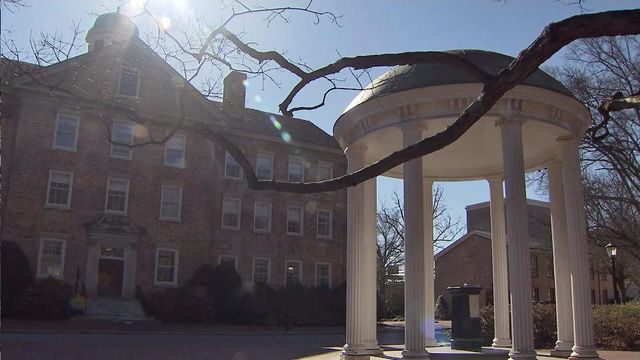Pandemic adds to stress, anxiety of UNC students, study finds
Online classes during the coronavirus pandemic have created higher levels of stress and isolation for University of North Carolina students, prompting the Board of Governors to put more mental health resources on the system's 17 campuses.
Posted — UpdatedNormally, college students struggling with mental health issues can go to the counseling center on their campus for help. But many UNC students aren't on campus now because of the pandemic, which also has made this year more difficult than usual.
"The survey found that, four months into COVID-19, one-quarter of the students reported that they were suffering from anxiety and one-third from depression," Board of Governors member Carolyn Coward told the board on Thursday. "This marks a 40 percent increase over last fall for anxiety and a 48 percent increase for depression."
The pandemic has been even harder on college students of color. The study found 61 percent of Black students reported symptoms of depression in June – nearly twice as many as before the pandemic.
Along with UNC-Chapel Hill, North Carolina State University and East Carolina University are the only schools in the system that have shifted all classes online this fall. UNC-Charlotte will decide next week whether to follow suit.
The Board of Governors voted unanimously to look at the mental health services available at each school and add resources where needed to make sure students who need help can get it, even if they’re not physically present on campus.
"We know that this disruption to college life has more impact on low-income, first-generation and minority students," board Chairman Randy Ramsey said. "We also know how important the campus environment is for our most vulnerable students. We do not take these responsibilities lightly."
Related Topics
• Credits
Copyright 2024 by Capitol Broadcasting Company. All rights reserved. This material may not be published, broadcast, rewritten or redistributed.






